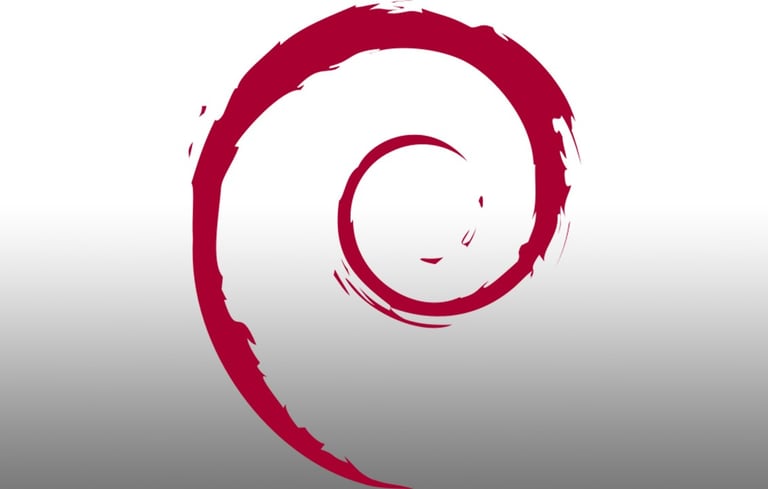Debian 12.7 and 11.11 ISOs Released
What's New and What You Need to Know
August 2024
PC Boss.co


Key Updates and Package Inclusions
The new ISOs for Debian 12.7 and 11.11 bring together a variety of updated packages, ensuring your system is up-to-date from the get-go. Some of the significant packages updated in these releases include:
Calibre: Improved performance and bug fixes for this popular e-book manager.
Linux Kernel: Enhanced security and hardware compatibility.
Numpy: Updates to this essential scientific computing library.
Shim: A critical update concerning Secure Boot compatibility.
Systemd: Better system and service management with new bug fixes.
QEMU: Improved virtualization performance and stability.
Emacs: Updates to this versatile text editor.
OpenJDK-17: The latest improvements in the Java development environment.
WPA: Enhanced security for wireless networks.
Flatpak: Updates for this popular application sandboxing tool.
Chromium & Firefox-ESR: The latest security patches and feature enhancements.
Comparisons with Previous Releases
When comparing Debian 12.7 and 11.11 to their predecessors, the key difference lies in the inclusion of the latest security and software updates. These point releases are primarily about stability and security, ensuring that your system is protected from the latest vulnerabilities while also benefiting from improved package performance.
For Debian 12 users, the updates are a continuation of the improvements introduced in the main release, focusing on refining and enhancing system stability. On the other hand, Debian 11.11 represents one of the final updates before the Debian Long Term Support (LTS) team takes over, ensuring that security updates continue for Debian 11 users until August 2026.
Secure Boot Issue: A Closer Look
One of the more significant issues flagged in the Debian 11.11 update revolves around Secure Boot. The Debian team highlighted that shim 15.8, included with Debian 11.11, revokes signatures across older versions of shim in the UEFI firmware. This may result in older operating systems using shim versions before 15.8 being unable to boot if Secure Boot is enabled. This is especially important for users who dual-boot their systems with other operating systems.
What You Should Do:
If you're using multiple operating systems on the same hardware, you should temporarily disable Secure Boot before updating your other operating systems. This will prevent potential boot issues with those systems.
The Importance of Staying Updated
For users already running Debian, there’s no need to worry if you’ve kept your system updated. Your system is already on these point releases, and no additional action is required. However, if you have older installation media and plan to reinstall Debian, using the new ISOs will save you from downloading updates post-installation.
Top 10 Q/A
Do I need to reinstall Debian to get the latest updates?
No, if your system is already up-to-date, you don’t need to reinstall. These point releases are primarily for new installations.
What should I do if I encounter boot issues with Secure Boot?
Disable Secure Boot before updating any other operating systems that might be using older versions of shim.
How long will Debian 11 receive security updates?
Until August 31, 2026, under Debian Long Term Support (LTS).
Can I still use my older Debian installation media?
Yes, but you'll need to download updates post-installation.
What’s the difference between Debian 12.7 and 11.11?
Debian 12.7 is the latest update for the current stable release, while 11.11 is part of the previous release cycle with continued security updates.
Are the new ISOs available for download now?
The ISOs will be available soon on the Debian download page, though they may not be live at the time of writing.
What popular packages have been updated in these releases?
Updates include Calibre, Linux Kernel, Numpy, Systemd, QEMU, and more.
What should I do if my system doesn’t boot after the update?
Ensure that Secure Boot is disabled if you're using an older version of shim in any operating system on your hardware.
Is it recommended to upgrade to Debian 12 if I’m on Debian 11?
Yes, upgrading to Debian 12 is recommended for the latest features and longer-term support.
How does this update affect Debian's future releases?
These updates are a stepping stone toward Debian 13, ensuring a stable and secure transition.
BOSS LEVEL TIP: Future-Proofing Your Debian System
To prevent boot issues and maintain system stability in the future, it’s crucial to regularly check for updates and be aware of any changes related to Secure Boot and UEFI firmware. As Debian continues to evolve, staying informed about these critical updates will help you avoid potential issues and ensure a smooth experience across all your devices.
Consider setting up a routine to review major updates from Debian and other operating systems you use in a dual-boot setup. Keeping your system’s firmware and software in sync with the latest security protocols will minimize risks and ensure that your Debian setup remains robust and reliable.
The Debian Project has recently rolled out the latest point releases, Debian 12.7 and Debian 11.11, which include all the recent package updates. If you're planning to install Debian on your system using these new ISOs, you'll save time by not having to download updates post-installation. But what exactly does this mean for current and potential Debian users? Let’s dive into the details, comparisons, and what to look out for.
